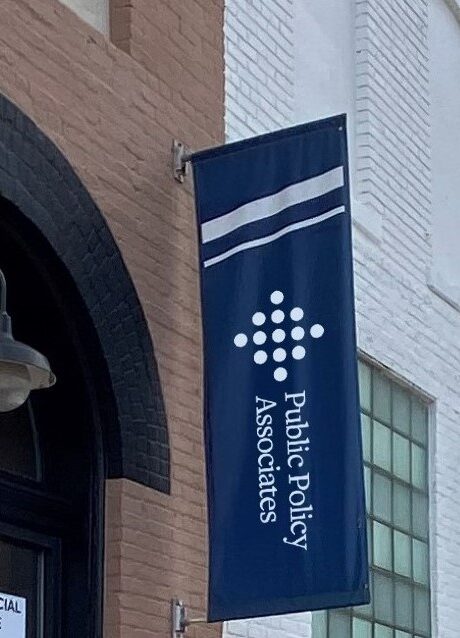 Robb Burroughs is Public Policy Associates’ director of justice policy. He has spent 17 years working on criminal and juvenile justice issues in Michigan and other states. He has expertise in evaluation, strategic planning, project management, and facilitating system change to improve outcomes.
Robb Burroughs is Public Policy Associates’ director of justice policy. He has spent 17 years working on criminal and juvenile justice issues in Michigan and other states. He has expertise in evaluation, strategic planning, project management, and facilitating system change to improve outcomes.
Mr. Burroughs worked in Cincinnati for a supportive housing program for two years before heading to graduate school at the University of Michigan, where he earned a master’s of social work degree. He also has an undergraduate degree in social work from Xavier University.
1. Your research has focused primarily on criminal and juvenile justice. How did you get started?
I envisioned this type of work when I entered graduate school. From my work in supportive housing and helping people who were homeless, I quickly recognized policy barriers that go beyond individuals’ personal circumstances. And I saw that an enormous number of the people who I was working with had past or current contact with the criminal justice system.
I started at the Michigan Council on Crime and Delinquency (MCCD) as part of my professional practicum work during graduate school and stayed on. In 2005, MCCD—and Public Policy Associates—were partners with the Michigan Department of Corrections in the development the Michigan Prisoner ReEntry Initiative (MPRI), giving former prisoners the support they need to succeed when they return to the community.
2. What was your role in that statewide effort?
MCCD and PPA were strategic partners, and I was involved at every stage, from developing the broader design to launching pilot projects, to taking MPRI statewide. One of my key responsibilities was working with the community coordinators around the state to help them share ideas, understand what was working and address challenges, and build community support.
MPRI made a significant impact in allowing Michigan to reduce its prison population without compromising public safety. Michigan is still cited as a leader in helping people to stay out of prison after reentering society.
3. What are some of the main projects you are involved in now?
I lead PPA’s work with the Michigan Public Health Institute and the Michigan Department of Health and Human Services to monitor statewide compliance with federal laws regarding the safe treatment of juveniles within the justice system. We also collect and analyze data to help state and local stakeholders identify and address racial and ethnic disparities within the juvenile justice system. I am also involved in evaluating local juvenile justice programs throughout Michigan as well as an adult reentry program in New York City.
4. How does research contribute to better programs and policies?
On the one hand, it’s important that folks are doing interventions based on what data show are the actual needs and conditions. Data collection and sound analysis play a big role in determining where to aim efforts. Our research informs our clients’ efforts to make sure their programs and policies are having the desired impact.
There are plenty of examples of things that were well intentioned and looked good, but maybe haven’t been effective. There are also examples of things that were found to be very effective at a time when the thinking was there wasn’t anything you could do, that criminals were criminals. Research has shown there are a lot of effective interventions to change that trajectory.
5. How does race equity fit into your work?
It’s a huge piece. Unfortunately, all of the inequities in various systems accumulate once you get to juvenile justice and criminal justice, where you see racial inequity in who is arrested, whether they spend time in prison, and how long they are incarcerated. It’s an issue that starts well upstream of the justice system, and one that the system has to continue to grapple with.

